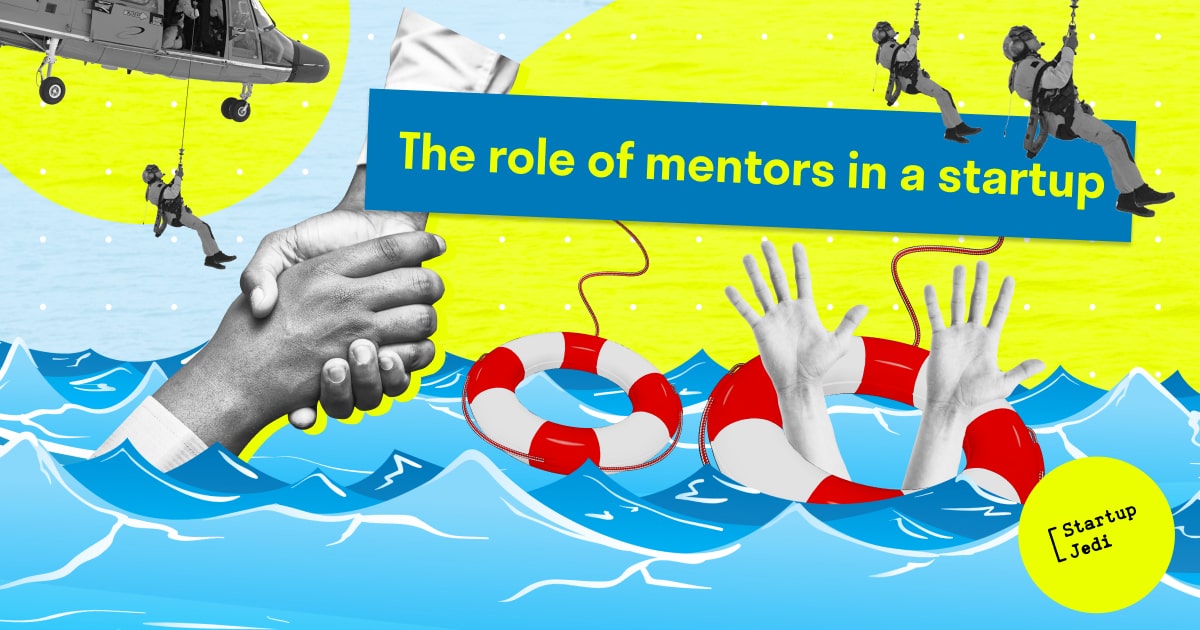
Startup Jedi
We talk to startups and investors, you get the value.
How to make the most of your mentors and advisors?

Startup Jedi
We talk to startups and investors, you get the value.
If you’ve ever wondered how to attract mentors or advisors this article is meant to help you. Will talk about what you should and shouldn’t offer them and address the most important question for every entrepreneur: how to make the most of your mentors and advisors? This article is no "silver bullet", but we hope it will help to avoid at least some mistakes on your entrepreneurial path.

Let’s start with who mentors and advisors are. How are they different?
What advantages do they give to a startup? If you google "Startup mentor", three main categories of answers pop up: growth mentors, mentors in a narrow specialization and mentors of a "general profile”. As a rule, the latter are entrepreneurs with successful and unsuccessful business development experience who are ready to share it with less experienced colleagues.
In the broadest sense, a mentor is a confidant with significant experience in entrepreneurship, investment or a narrow industry who helps young entrepreneurs turn their ideas into measurable results. Mentors do this "Pro bono", without expectating payment or other reward for their services. They share their knowledge and experience to help their mentees stay focused on achieving their goals.
Unlike mentors, advisors do not work for free. They can also help solve urgent problems of the entrepreneur, since they have experience dealing with them, but they will take a reward for sharing their knowledge and experience. As a rule, this is a small share in a startup (up to 1%), $ 1,000 in advance for their services and covering the time they spend on solving startup issues (note that this mainly refers to the practice in Silicon Valley, experience from other countries may differ).
Alexander Ryabtsev, founder of Startup.In.UA, expert at Ukrainian Startup Fund:
I have worked with several startups as a mentor. It is best when the team has a specific request that we can work with. In my case, it could be a development strategy using a business model template, fundraising, or a communication strategy. Although, most often, the team does not yet have enough competencies to formulate a specific request, and you have to conduct some kind of a coaching session or two in order to identify the weaknesses of the project and then help the team find a solution.
Evgeny Kozak, founder of 12climb:
Our team has created a unique product that can become quite competitive in the global market, namely interactive bouldering boards that are now an Olympic sport. At the same time, the lack of competence in sales and building partnerships in our team was obvious. We already have our first clients, but like any startup, we want to grow even faster. Thanks to the mentoring, we found the weak points and outlined a plan for the development of the project for the coming months.

If you are asking this question, then most likely it is too early for you to get involved in a startup. As a rule, an entrepreneur who already has some experience knows who to contact and who to avoid. Besides, you should avoid consultants who offer their services to the startup themselves. Ideally, it should be your decision to contact this particular person for advice on certain issues, based on your own experience in solving them.
It is best to go to some entrepreneurs’ get-togethers, where you can listen to those who are already making their own startups and consult with them about who you can discuss the current problem of your business with. In Kiev, for example, these are Unit.city, iHUB, Platforma, Kooperative and the oldest coworking Chasopys that once gave birth to a fairly large number of projects.
Besides, you can try to access online resources:
Thomas Hong project from Silicon Valley, which offers an online get-together for $ 125 per year for community members only, where you can get training, advice and contacts.
Growth Mentor offers unlimited consultations on growth strategies for your project in the form of online calls or monthly coaching for $ 75 per month. On the same resource, you can hire a marketer, consultant or auditor of growth strategies.
WOCE is a niche resource offering mentoring support to women of color who are entrepreneurs. Project partners include TechStars Boston, ImpactHub Boston, Boston Impact Initiative Fund and others.
Finally, it is worth mentioning acceleration programs. We published a large review of accelerators earlier, each of which offers, among other things, mentoring support both during the course of the program and after completing it. For those entrepreneurs who are just taking their first steps in their project, taking part in the acceleration program can be an excellent start on the way to success.

In conclusion, we will give recommendations to those who need advice in their project.
The first tip for beginners is to get started. You will never be ready to launch a project. You have to start gaining your own experience in order to understand what advice is worth listening to.
Secondly, if you have minimal business experience, go through the acceleration program. The COVID-19 pandemic has made it possible to take programs online in the world's best accelerators.
Finally, build your own reputation to attract the best people to your project, both as team members and mentors.
And remember that a mentor has the same role in the team as the rest, which means that they should be useful.
Facebook: facebook.com/StartupJedi/
Telegram: t.me/Startup_Jedi
Twitter: twitter.com/startup_jedi
Comments